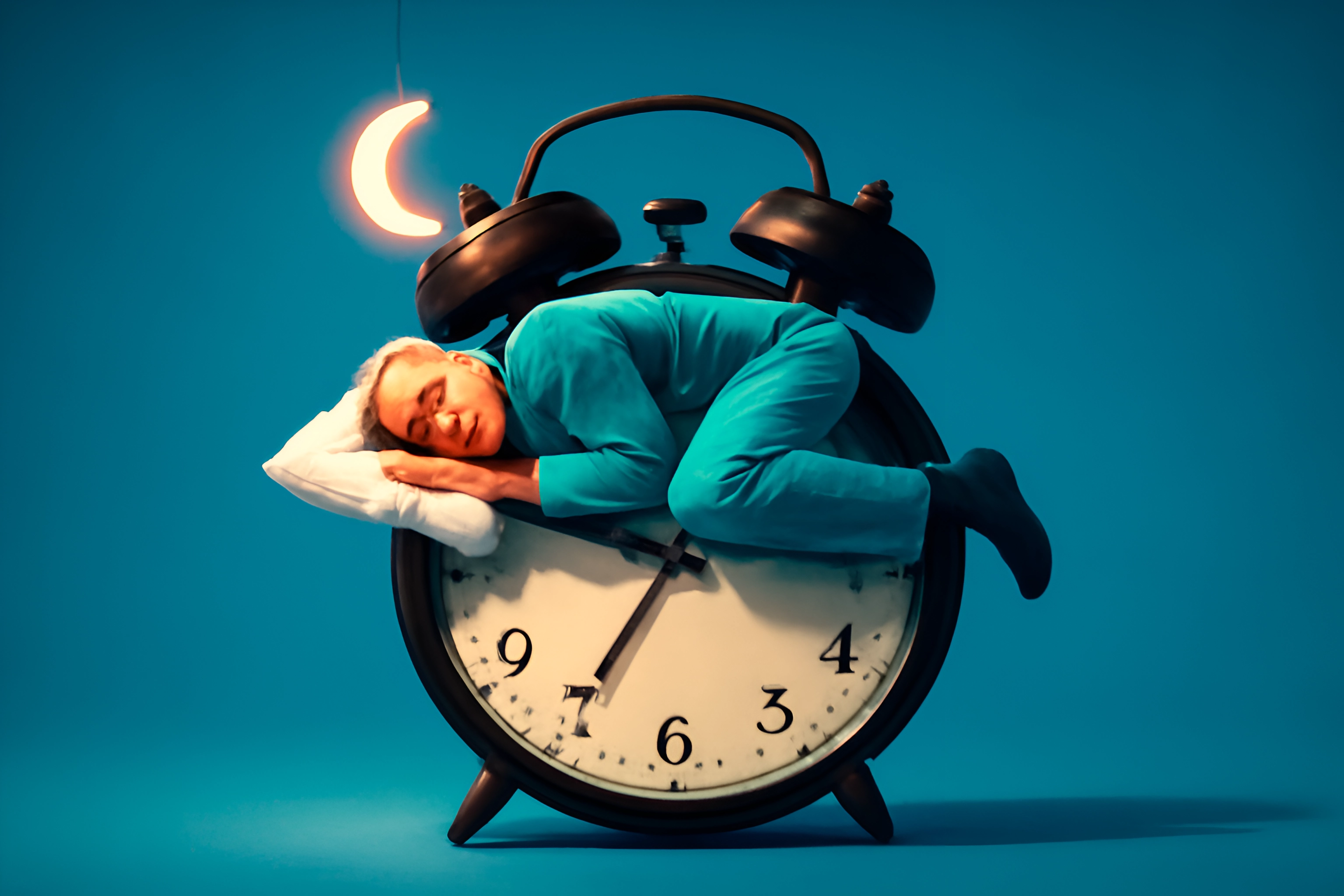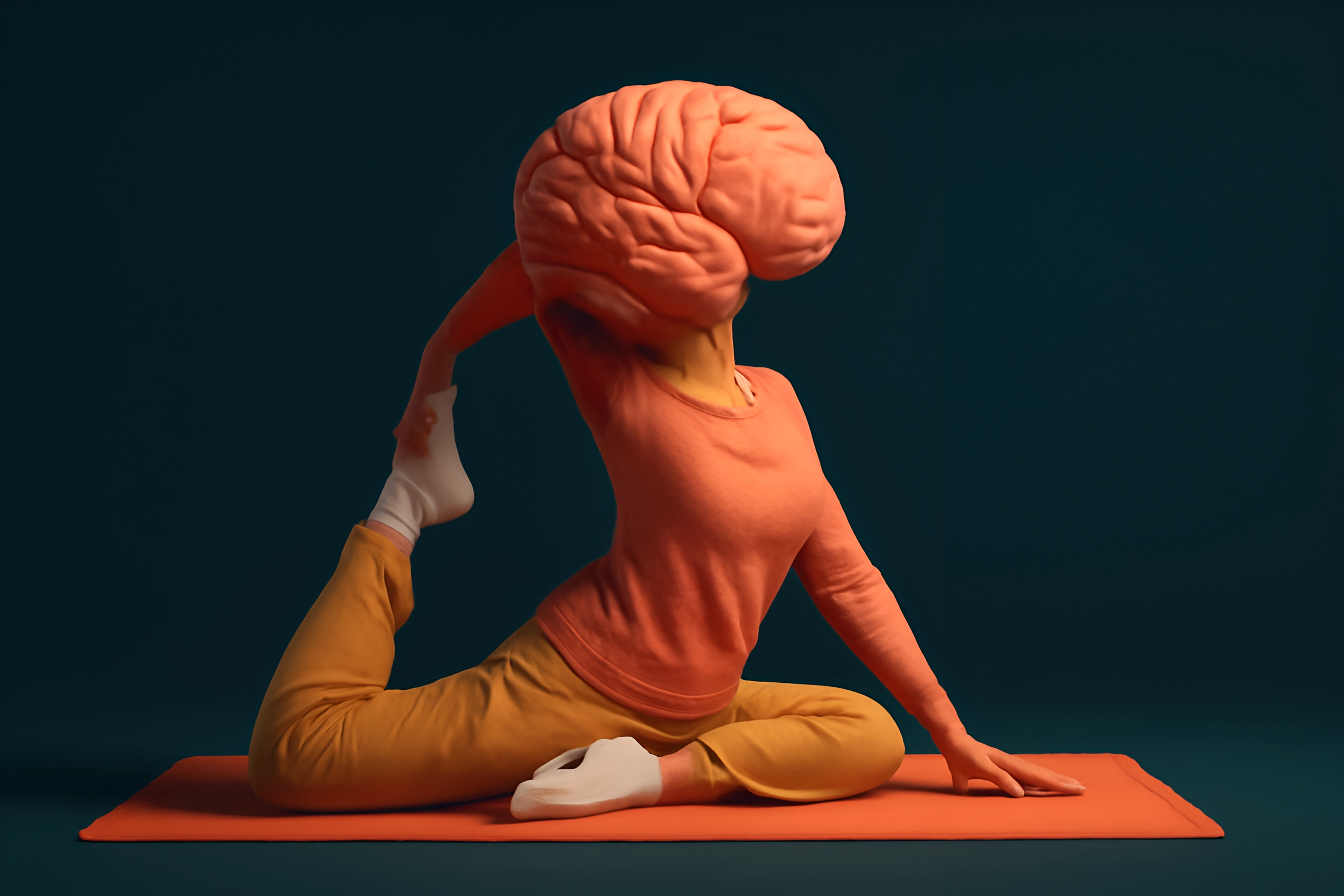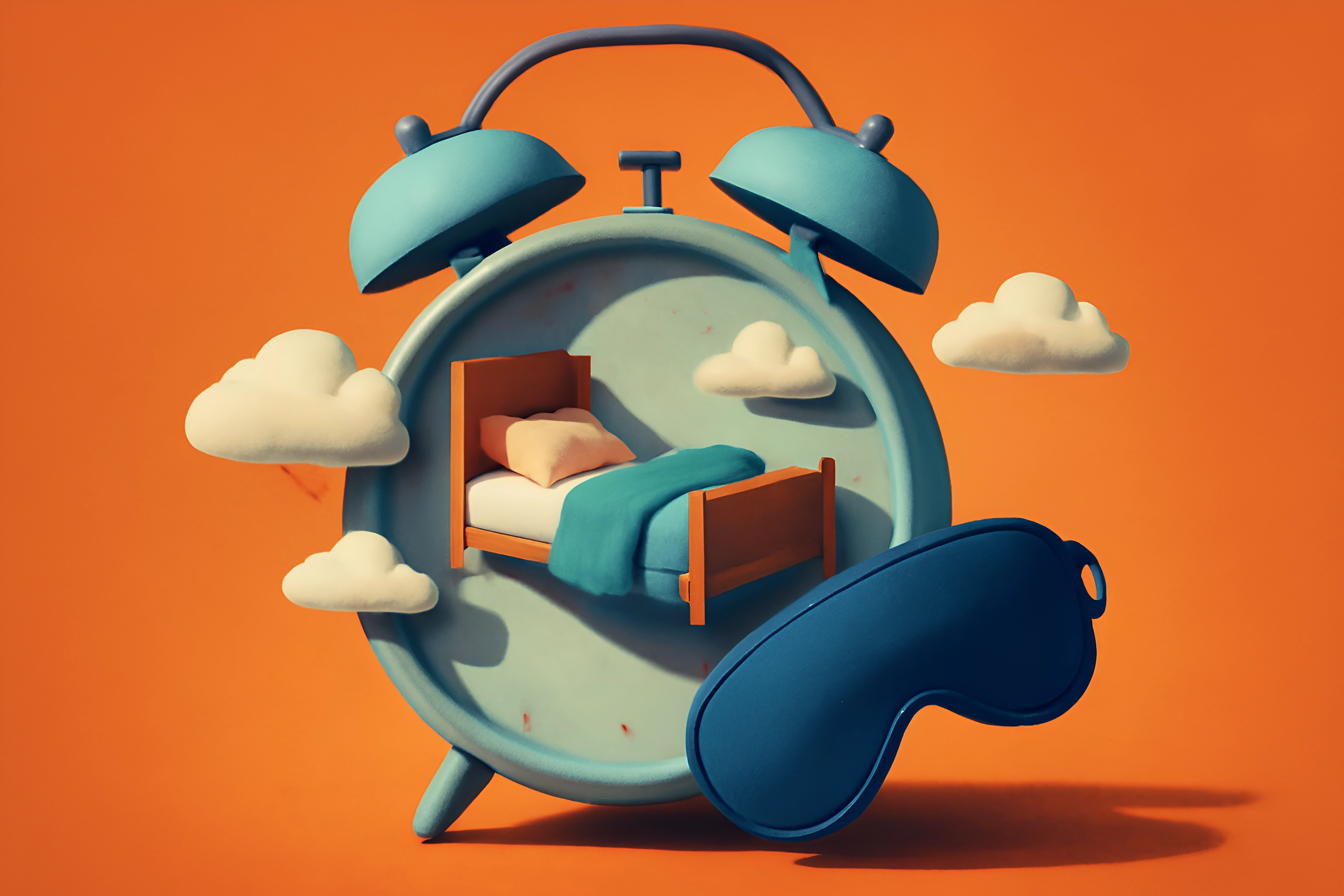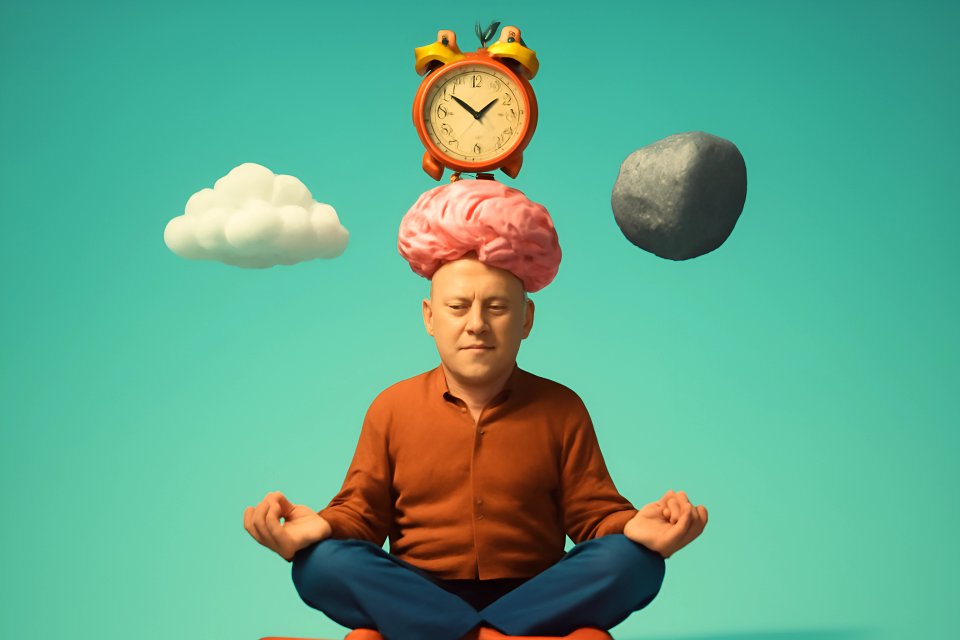
Does this sound familiar? You climb into bed, exhausted from a full day. You close your eyes, expecting deep, restorative rest. But morning comes, and you feel just as tired—if not more so—than when you went to bed. This isn't a personal failing; it's a frustrating reality for millions of adults over 50.
As we age, the rules of the game change. It's no longer just about the quantity of sleep you get, but the profound quality of that sleep. This isn't passive downtime; it's your body's most critical period for active repair, rejuvenation, and recovery. Forget the generic advice you've heard a thousand times.
This guide is your new playbook. We will provide actionable, science-backed, and effective sleep optimization techniques for seniors that directly link to better physical recovery, sharper mental clarity, and the vibrant energy you deserve. Your journey to waking up feeling powerful and refreshed starts now.
The Undeniable Link: How Quality Sleep Supercharges Your Recovery
Why is sleep the ultimate performance enhancer after 50? Because while you're dreaming, your body is hard at work. Think of deep sleep as your personal, overnight construction crew, rebuilding and fortifying you from the inside out. During these crucial hours, your body releases growth hormone, which is essential for repairing muscle tissue damaged from exercise and the simple wear and tear of daily life.
Poor sleep does more than just make you groggy; it wages a hormonal war on your body. A single night of inadequate rest can cause your cortisol—the stress hormone—to spike, signaling your body to store fat and break down muscle. According to a study in Frontiers in Psychology, a staggering 70% of older adults are classified as poor sleepers, making them more vulnerable to these hormonal imbalances that can sabotage fitness goals.
Beyond the physical, your brain desperately needs this time to restore itself. Quality sleep clears out metabolic waste that accumulates during the day, a process vital for maintaining memory, focus, and warding off that dreaded "brain fog." A well-rested mind is a sharp mind, and a well-rested body is a resilient one, armed with a fortified immune system ready to keep you active, healthy, and thriving.
Foundational Habits: Creating Your Sanctuary for Sleep
Before you can optimize your sleep, you must first build a fortress for it. Your bedroom should be a sanctuary dedicated to rest and rejuvenation, not a multi-purpose room filled with distractions. By optimizing sleep hygiene over 50, you send a powerful, undeniable signal to your brain that this space is for deep, restorative sleep.
The Cave Principle: Keep it Dark, Quiet, and Cool
Your primal brain is wired to sleep in a cave: a space that is dark, silent, and cool. Replicate this environment for profound results. First, achieve total darkness by using blackout curtains or a comfortable sleep mask to block all ambient light. Even the tiny glow from a phone charger can disrupt your sleep cycle.
Next, conquer noise. If you live in a busy area, earplugs or a white noise machine can be transformative, masking disruptive sounds that can pull you out of deep sleep. Finally, turn down the thermostat. The Sleep Foundation recommends a room temperature between 60-67°F (15-19°C) because a drop in your core body temperature is a key biological trigger that initiates sleep.
The Digital Sundown: Powering Down for a Better Wind-Down
That glowing screen in your hand is your sleep's worst enemy. The blue light emitted from phones, tablets, and TVs directly suppresses the production of melatonin, the hormone that tells your body it's time to sleep. You are essentially tricking your brain into thinking it's still daytime, making it nearly impossible to wind down naturally.
The solution is simple but non-negotiable: implement a "digital sundown." Commit to putting all screens away for at least 60-90 minutes before your intended bedtime. Use this time to disconnect from the digital world and reconnect with yourself. This single habit can dramatically improve your ability to fall asleep faster and achieve deeper, more restorative rest.
Your Bed is for Sleep Only (and Intimacy)
Is your bed also your office, your dining room, and your movie theater? If so, it's time to reclaim its purpose. When you perform wakeful activities in bed, your brain creates a powerful mental association between your mattress and a state of alertness, which can lead to frustration and insomnia.
As outlined in research from the National Institutes of Health on treating insomnia, a core principle of good sleep is stimulus control. This means strictly reserving your bed for sleep and intimacy. If you can't fall asleep within 20 minutes, get out of bed, go to another dimly lit room, and do something relaxing until you feel sleepy again. This breaks the negative cycle and retrains your brain to see your bed as a place of peaceful rest.
The Wind-Down Ritual: Advanced Strategies for Preparing Mind and Body
With your sleep sanctuary established, the next step is to create a powerful wind-down ritual. This is a consistent, nightly routine that signals to your mind and body that the day is over and it's time to prepare for deep recovery. These advanced sleep strategies for older adults are designed to calm a racing mind and release physical tension.
The Power of a Consistent Schedule
Your body thrives on routine. It operates on an internal 24-hour clock known as the circadian rhythm, which governs your sleep-wake cycle. The most effective way to regulate this clock is to go to bed and wake up at the same time every single day—yes, even on weekends.
This consistency reinforces your body's natural rhythm, making it easier to fall asleep at night and wake up feeling refreshed without an alarm. While it may feel restrictive at first, a consistent schedule is one of the most powerful tools for improving sleep quality and overall energy levels. It’s a foundational habit that makes all other techniques more effective.
Mindful Decompression: Calm the "Busy Brain"
For many, the moment their head hits the pillow is when the "busy brain" kicks into high gear, replaying the day's events and worrying about tomorrow. You must actively decompress to shut off this mental chatter. A simple "brain dump" in a journal can be incredibly effective; spend five minutes writing down everything on your mind to get it out of your head and onto paper.
Next, incorporate simple breathwork to calm your nervous system. The 4-7-8 breathing method is a powerful technique: inhale through your nose for 4 seconds, hold your breath for 7 seconds, and exhale slowly through your mouth for 8 seconds. For a deeper dive into these practices, explore these mindfulness and meditation techniques for stress relief. Finally, a few minutes of gentle, static stretching can release physical tension stored in your muscles, preparing your body for complete relaxation.
Strategic Nutrition and Hydration for Sleep
What you consume in the hours before bed can either help or hinder your sleep. Avoid large meals, caffeine, and alcohol in the 2-3 hours before you plan to sleep. While alcohol might make you feel drowsy initially, it severely disrupts the second half of your sleep, preventing you from reaching the deep, restorative stages.
Instead, if you feel hungry, opt for a small, sleep-friendly snack that contains tryptophan or magnesium, like a handful of almonds, a small banana, or a warm cup of chamomile tea. Be mindful of your fluid intake as well to prevent multiple trips to the bathroom from interrupting your rest. Proper nutrition is a key component of a holistic approach to stress-free living over 50.
Use Temperature to Your Advantage: The Warm Bath/Shower Trick
Here is a simple biological hack you can use to your advantage. Taking a warm bath or shower about 90 minutes before bed does more than just relax your muscles. It raises your core body temperature.
When you get out, your body temperature begins to fall rapidly. This sudden drop mimics the natural temperature decline that your brain interprets as a powerful signal to initiate sleep. It’s a simple, enjoyable, and scientifically-backed way to tell your body that it's time to wind down and prepare for a night of deep recovery.
Daytime Habits That Directly Impact Your Nightly Recovery
Your quest for better sleep doesn't start when the sun goes down. The choices you make from the moment you wake up have a profound impact on your ability to rest and recover at night. These senior sleep improvement tips focus on aligning your daily activities with your body's natural rhythms.
Harness the Power of Morning Light
One of the most effective ways to anchor your circadian rhythm is to expose yourself to direct sunlight within the first hour of waking. Step outside for 10-15 minutes without sunglasses. This morning light exposure sends a strong signal to your brain to shut off melatonin production and start the "daytime clock."
This simple habit not only helps you feel more alert and energized during the day but also sets you up for a better night's sleep by ensuring a robust release of melatonin when evening arrives. According to HelpGuide.org, getting adequate natural light is crucial for regulating sleep patterns as we age. It’s a free, powerful tool for optimizing your internal clock.
Smart Exercise Timing
Regular physical activity is fantastic for sleep quality, but the timing of that activity matters. Exercise raises your core body temperature and releases stimulating hormones like adrenaline, which is great for a morning or afternoon workout but counterproductive in the evening.
Aim to finish any moderate-to-intense workouts at least three hours before your bedtime. Gentle activities like stretching or a leisurely walk are perfectly fine in the evening. For ideas on effective and joint-friendly workouts, check out these low-impact cardio ideas for the 50+ crowd.
Napping Wisely: The Power Nap vs. The Sleep Saboteur
A short nap can be a fantastic way to recharge, but an ill-timed or overly long nap can sabotage your nighttime sleep. If you need to nap, follow two simple rules to ensure it works for you, not against you.
First, keep it short. A 20-30 minute "power nap" is long enough to improve alertness and performance without leaving you groggy or entering deep sleep stages. Second, time it right. Aim to finish your nap before 3 p.m. to ensure it doesn't interfere with your ability to fall asleep at your regular bedtime.
Conclusion: Your Journey to Restorative Sleep Starts Tonight
The power to transform your nights and supercharge your days is already in your hands. Waking up feeling tired, sore, and foggy is not an inevitable part of aging; it's a problem with a solution. By taking control of your sleep, you are making one of the most profound investments possible in your long-term health, vitality, and happiness.
Remember the pillars of restorative rest: optimize your environment to be a dark, quiet, and cool sanctuary; create a consistent wind-down ritual to calm your mind and body; and be mindful of your daytime habits, from morning sunlight to smart exercise timing. It’s not about achieving perfection overnight. It’s about taking consistent, small steps to enhance sleep recovery after 50. Choose one new technique from this guide and commit to trying it tonight.
What is one change you are going to make to your sleep routine this week? Share your commitment in the comments below—we’d love to cheer you on

















